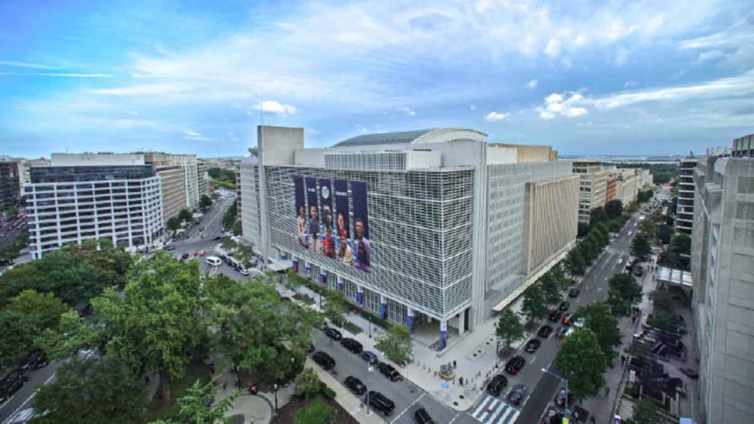
Audio By Carbonatix
With less than three months to end the year, the World Bank is projecting a significant rise in Ghana's total public debt for this year.
According to the Bretton Wood's institution October 2020 Africa Pulse Report, this is due to the widening fiscal deficit as a result lower revenue and high expenditure brought about by covid-19.
The country’s debt has already hit GHS263 billion, about 68.3% of Gross Domestic Product in July 2020.
Ghana still remains a high risk debt distress country, according to the World Bank’s analysis. Neighboring Ivory Coast is however classified as having moderate debt levels and in the moderate risk category.
The Sub Saharan Africa region’s level of public debt will however hit 63.1% of GDP in 2020.
The World Bank said sustainability of post-COVID-19 will depend on the ability of Sub-Saharan African countries to alleviate their mounting debt burdens and create increased fiscal space.
According to volume 21 of the Africa’s Pulse, the World Bank said effective economic policies, which include macroeconomic and debt management, will increase a country’s capacity to repay its debts. “Enhancing debt management requires better debt transparency and improved efficiency in the use of borrowed resources to expand the fiscal space”, it said.
It also emphasized that creating fiscal space will help the economy cushion the effects of the pandemic crisis and avoid a deeper recession—including in countries with less diversified economic structures.
Additionally, managing a country’s borrowing patterns will reduce the risk profile of debt and may help alleviate the adverse growth effect of the pandemic shock, it added.
Components of Ghana’s debt
The external component of the GHS263 billion debt is estimated at GHS138 billion [$24.3bn], representing 35.8 percent of GDP.
The domestic component of the debt is also estimated at GHS125.1 billion, approximately 32.5% of GDP.
The financial sector resolution bond however constitutes GHS14.2 billion, which is equivalent to 3.7 percent of GDP.
Interest payments
Ghana is expected to pay about GHS26 billion on interest payments for this year alone.
This will be a little over GHS6 billion interest payments in 2019. Last year, interest payments cost the nation about GHS19.756 billion on loans borrowed.
Out of this, GHS4.60 billion was spent on the external debt, while GHS15.156 billion was used to service loans contracted from the domestic market.
Latest Stories
-
BoG to tighten monetary policy in half-year 2026
2 minutes -
Parliament approves GH₵357 billion budget for 2026
8 minutes -
MAX and Bolt announce strategic partnership to power electric mobility and vehicle ownership in Ghana
24 minutes -
Greater Accra poultry farmers association says it was excluded from gov’t ‘Nkoko nkiti nkiti’ initiative
38 minutes -
Michael Adangba survives dawn road crash en route to Bolgatanga
42 minutes -
Court remands 40-year-old man for alleged murder
42 minutes -
AngloGold Ashanti Obuasi mine donates fire tender to boost emergency response in municipality
44 minutes -
Gov’t introduces sliding-scale mining royalties to capture price gains
55 minutes -
Global Africa Summit Accra 2025 rallies investors, diaspora and policymakers to boost trade and growth
56 minutes -
New research suggests a better way to fight littering in Ghana
57 minutes -
We must protect our own – Adutwum spokesperson calls for Ashanti solidarity
1 hour -
FDA shuts down 7 Foreign shops in Kumasi over unapproved, foreign-labelled products
1 hour -
13 arrested as Central East Police crack down on crime in Senya Beraku enclave
2 hours -
Kumasi residents raise alarm over poor street lighting ahead of Christmas
2 hours -
Police swoop in Kintampo nabs 13 in drug bust, seizes cannabis and tramadol
2 hours

